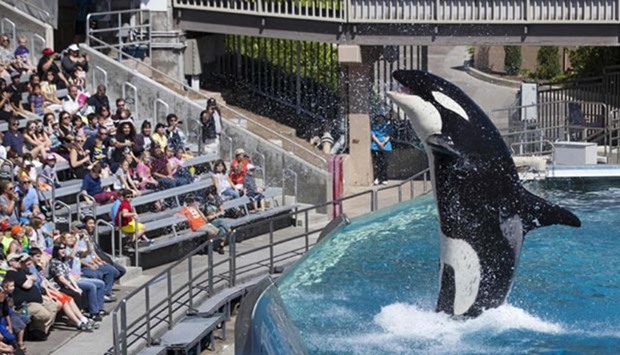Marine theme-park giant SeaWorld announced on Thursday it will stop breeding orcas, also known as killer whales, and will no longer keep any of the giant sea creatures in captivity after its current generation dies.
The park and popular tourist destination has faced criticism from animal rights groups over its treatment of orcas, which opponents say are kept in tanks that are too small, fed improper diets and forced to perform tricks.
"The killer whales in our care will be the last at SeaWorld," said a company statement.
"We haven't taken a whale from the wild in nearly 40 years. Now, we're going further and will end our orca breeding programs as of today."
SeaWorld currently has seven orcas in Orlando, Florida; five in San Antonio, Texas; and 11 in San Diego, California.
The animals range in age from one to 51. SeaWorld also has one orca that is currently pregnant.
Another, Tilikum, who drowned his US trainer during a live show in 2010, is severely ill due to a bacterial infection.
As part of deal struck with The Humane Society of the US, SeaWorld pledged to donate $50mn over the next five years for the rescue and rehabilitation of marine animals and on advocacy campaigns.
'Most beloved'
Wayne Pacelle, president and CEO of the HSUS, called the move "a major boost to our movement in helping marine animals in crisis."
SeaWorld also said any new parks opened around the world would not contain orcas, and that "new, inspiring and natural orca encounters" would be introduced instead of theatrical acts with the animals.
The changes will begin in San Diego next year, followed by San Antonio and Orlando in 2019, SeaWorld said.
"SeaWorld has introduced more than 400mn guests to orcas, and we are proud of our part in contributing to the human understanding of these animals," said Joel Manby, president and chief executive officer of SeaWorld Entertainment, Inc.
"We've helped make orcas among the most beloved marine mammals on the planet. As society's understanding of orcas continues to change, SeaWorld is changing with it."
"By making this the last generation of orcas in our care and reimagining how guests will experience these beautiful animals, we are fulfilling our mission of providing visitors to our parks with experiences that matter."
The 2013 documentary Blackfish depicted the harms inflicted on orcas in captivity.
SeaWorld disputed the allegations, saying the film "relies on animal rights activists masquerading as scientists."

